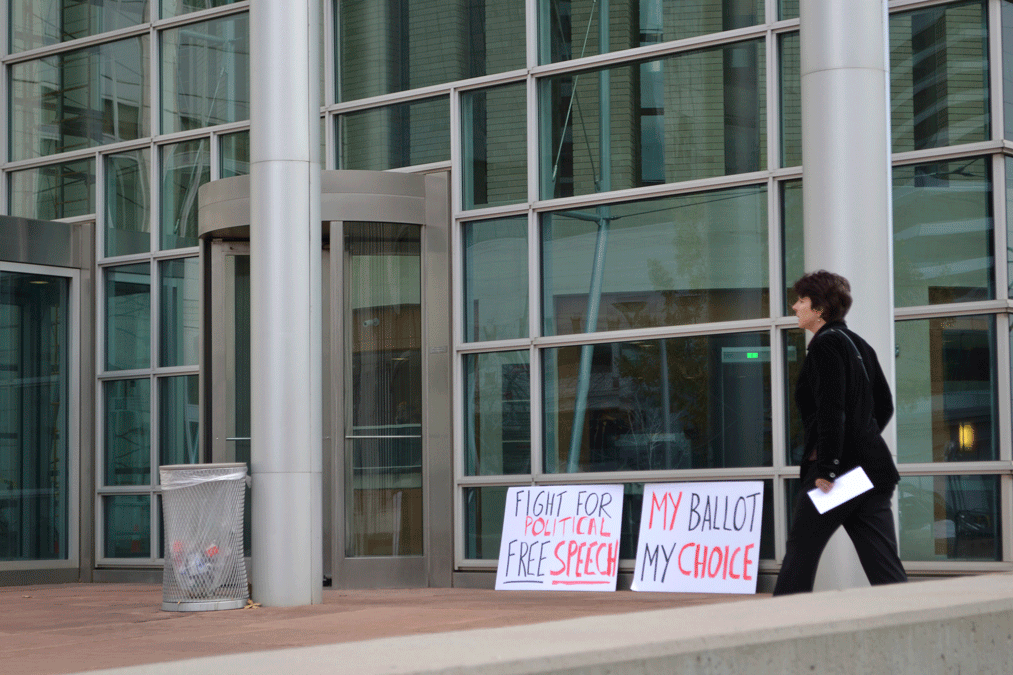If you’re considering taking a ballot selfie, check first

A woman enters the Alfred A. Arraj Courthouse past signs placed by those protesting against the ban to take selfie photos by voters showing a completed ballot
It’s second nature for some people. You vote and want to snap a selfie and share your ballot choices in a tweet or a Facebook post.
Turns out, ballot selfies are legal only in 18 states and the District of Columbia, according to an Associated Press analysis.
Hang on, though … no states in the Delaware Valley allow ballot selfies.
But it’s a little complicated in the details:
Pennyslvania
Law prohibits someone from revealing their ballot “letting it be known how” they’re “about to vote.” But officials recently released guidance on electronic items in polling places that noted the recent court cases that “found a First Amendment right to take ‘ballot selfies.'”
New Jersey
Law prohibits voters from showing their ballot to others. A pending legislative measure would allow voters to take photos of their own ballots while in the voting booth and share it on social media.
Delaware
Has a policy against cellphones in voting booths, but elections Commissioner Elaine Manlove said: “I don’t know that we can control what happens behind the curtain.”
The legalities
Some of the laws determining whether people can share their voting choices date back to teh 1800s. And leading up to Election Day, there have been a bunch of cases where concerns — and old notions — about vote-buying are tested.
The 1st Circuit Court of Appeals in Boston last month upheld a decision that New Hampshire’s ban on ballot selfies was unconstitutional, saying it suppressed a large swath of political speech and there was no evidence to support the state’s concerns.
“It goes to the core of democracy,” said Gilles Bissonnette, legal director for the American Civil Liberties Union of New Hampshire, which brought the suit on behalf of three people investigated for violating the statute.
Among those filing briefs in support of ballot selfies was Snapchat, which argued they are the latest way voters, especially young adults, get involved in the political process and express support for or against a cause or a candidate.
“We had a failure to recognize the importance of online political speech, especially to the younger generation,” Bissonnette said. “The First Amendment needs to be guarded rigorously. These old laws cannot and should not be applied to the modern technology.”
Last week, a judge ruled that Colorado voters can post ballot selfies on social media sites, differing from recent federal court decisions on the laws.
U.S. District Judge Christine Arguello ruled that Colorado can’t enforce an 1891 law preventing voters from disseminating their marked ballots. The ruling said polling places may still enforce local rules banning photography due to privacy concerns. However, no resident will be prosecuted for sharing images of completedballots on social media.
The order comes the same week that judges in New York and California upheld bans, saying changing the rules so close to the election would create confusion for voters and polling place workers.
The Associated Press contributed to this report.
WHYY is your source for fact-based, in-depth journalism and information. As a nonprofit organization, we rely on financial support from readers like you. Please give today.


